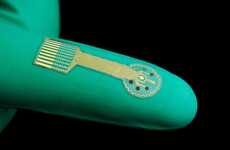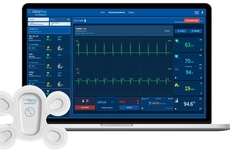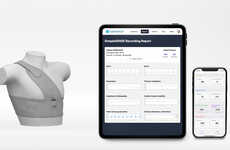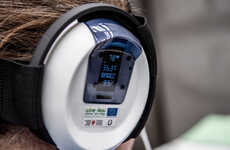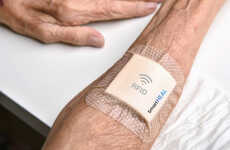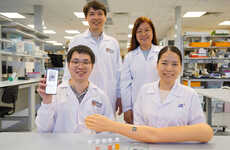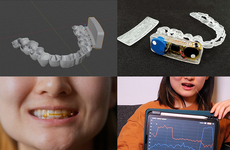
Researchers Have Developed a Biosensor Chip for Collecting Precise Data
Katherine Pendrill — May 30, 2015 — Tech
A team of researchers from Switzerland's École Polytechnique Fédérale de Lausanne have developed an induction-powered biosensor chip that can be inserted directly into your body. The chip is intended to monitor a person's body from the inside out in order to provide a more accurate snapshot of a patient's overall health.
At only a centimeter long, the biosensor chip is tiny enough to be inserted into the skin. The chip is then powered by a patch that sits on the surface of the skin and communicated directly with any mobile device. Capable of gathering precise data, the chip can be used to communicate the effects of drugs on a patients metabolism in real-time.
The biosensor chip is currently being tested in vivo on mice, but early results have been promising. In the future this kind of technology could be used to achieve more personalized and precise medical diagnoses.
At only a centimeter long, the biosensor chip is tiny enough to be inserted into the skin. The chip is then powered by a patch that sits on the surface of the skin and communicated directly with any mobile device. Capable of gathering precise data, the chip can be used to communicate the effects of drugs on a patients metabolism in real-time.
The biosensor chip is currently being tested in vivo on mice, but early results have been promising. In the future this kind of technology could be used to achieve more personalized and precise medical diagnoses.
Trend Themes
1. Implantable Biosensors - Implantable biosensors that can monitor a person's health from the inside out are becoming a disrupting trend in the healthcare industry.
2. Real-time Data Monitoring - The ability to gather precise data in real-time through biosensor chips can be a game-changer in the medical industry and is a trend to watch.
3. Personalized Medicine - The use of biosensor chips to provide a more accurate snapshot of a patient's overall health can pave the way for personalized and precise medical diagnoses, which is a trend that could revolutionize the healthcare industry.
Industry Implications
1. Healthcare - The healthcare industry can benefit greatly from biosensor chips that can provide more accurate and personalized medical diagnoses.
2. Pharmaceuticals - Biosensor chips can also disrupt the pharmaceutical industry by providing real-time data on the effects of drugs on patients' metabolism.
3. Mobile Device - The technology behind biosensor chips that can be powered by a patch and communicate with any mobile device provides an opportunity for digital health companies to further innovate in the mobile health space.
2.1
Score
Popularity
Activity
Freshness


